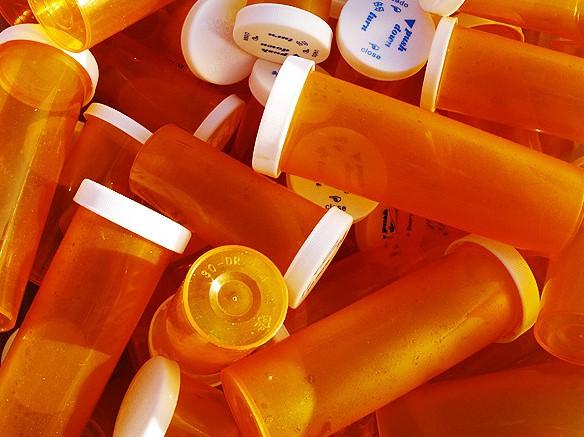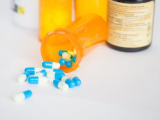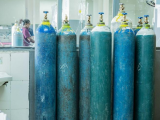COVID-19 snarled the US healthcare supply chain, but it was in trouble long before, experts say.
What's more, drug and medical-device shortages could get worse, Tammy Beckham, DVM, PhD, associate director of the US Food and Drug Association's (FDA's) Resilient Supply Chain Program at the Center for Devices and Radiological Health (CDRH), told attendees at this month's MedCon 2023.
"Shortages and supply chain issues don't just happen during a public health emergency," she said at the event, which was sponsored by the Association of Food and Drug Officials, the Regulatory Affairs Professional Society, and the FDA. "We've seen these before COVID, and we're continuing to see these moving into the future. Many of the issues we're facing are becoming much more complex and more systemic."
Problems that have plagued the healthcare industry for years, including scarce raw materials, sole-source suppliers, a concentrated market, quality problems and product recalls, labor issues, geopolitical conflict, and natural disasters won't go away with the end of the COVID-19 public health emergency.
But Beckham said that CDRH is taking action in three areas to mitigate drug shortages:
- Working with trade associations, health systems, and distributors to develop a list of medical devices most important to public health
- Urging better collaboration between the supply chain and product development
- Identifying vulnerabilities and interdependencies at a high level to address shortages before they escalate
A global crisis
Europe, as well as many other regions of the world, is also struggling with maintaining a steady flow of drugs such as antibiotics and generic medicines.
This month, 19 European Union (EU) member states issued a four-page report on a steady increase in drug shortages since 2022. The report cites problems such as increased demand, manufacturing and quality problems, factory closures, and supply-chain bottlenecks.
"In addition to these problems, the EU is becoming increasingly dependent on imports from a few manufacturers and regions for its medicines supply, adding a security dimension to the question," the authors wrote.
The EU has already taken actions such as creating legislation designed to improve national and European Medicines Agency oversight and mitigation of drug shortages, establishing a steering group to track the causes of shortages and monitor supply, and proposing the Critical Medicines Act to support the domestic manufacturer of drugs, active pharmaceutical ingredients, and intermediates for which the EU depends on one country or just a few manufacturers.
Both generic, brand-name products affected
Drug shortages and the quality problems that often cause them aren't limited to generic products, as evidenced by ongoing shortages of Adderall, Wegovy, Pluvicto, and others. Recently, the FDA has reported a slew of quality problems at both foreign and domestic plants that produce both generic and brand-name drugs.
"The FDA is finding problems in manufacturing quality whether the site is new or old, whether it is producing brand or generic drugs, or whether it is run by the product sponsor or their contractor," Pink Sheet reports.
For example, on April 26, the FDA issued an eight-observation report listing quality-unit failures and controlled-document oversight, on Iceland's Alvotech facility, which manufactures the rheumatoid arthritis drug Humira. After a March inspection, the FDA released a 10-observation report on Lupin's Pithampur, India, facility that cited unreported out-of-specification results and critical equipment breakdowns.
Based in the same Indian city, Cipla in March received an eight-observation report on its manufacturing plant related to microbiological contamination, power failures, and patient complaints. In Germany, Rentschler Biopharma SE's intermediate manufacturing plant in Baden-Wurttemberg was cited for inadequate prevention of microbial contamination and too-infrequent endotoxin monitoring of some point-of-use equipment.
In the United States, Eli Lilly's Technology Center in Indianapolis, Indiana, was given a three-observation report citing insufficient aseptic technique and surface sanitization done with soiled wipes.
Lack of transparency
In 2022, the World Health Organization (WHO) reported that Indian manufacturer Maiden Pharmaceuticals sold cough syrups that contained the deadly poisons ethylene glycol and diethylene glycol, which are used to make antifreeze, brake fluids, and other products.
The contaminated cough syrups were linked to the deaths of more than 70 children in Gambia, most of whom were younger than 5 years and died of acute kidney injury.
Now, Reuters reports that an unnamed middleman in Mumbai sold a crucial raw material used to make the cough syrups. Corrupt people can substitute these adulterants for propylene glycol, a key ingredient in syrupy medications, because they can be less than half as expensive.
In December, India's drug regulator told the WHO that the propylene glycol used to make the cough syrups were supplied by Delhi-based Goel Pharma Chem, who imported it from South Korea's SKC Co. Goel Pharma owner Sharad Goel said he bought the ingredient in sealed barrels from a Mumbai importer who procured it from SKC but couldn't name the importer, according to Reuters.
Unfortunately, the Maiden Pharmaceuticals poisoning was not unique. "In fact, the death of over 100 patients in the United States in the 1930s due to diethylene glycol contamination led to the creation of the Food, Drug and Cosmetic Act, which requires proof of safety for new drugs on the market," said David Margraf, PharmD, PhD, pharmaceutical research scientist at the Resilient Drug Supply Project (RDSP).
RDSP is part of the University of Minnesota's Center for Infectious Disease Research and Policy (CIDRAP), publisher of CIDRAP News.
"The lack of transparency in the global drug supply chain is a major concern that impacts drug shortages and life-threatening quality issues," he said. "It is essential to identify vulnerabilities within the supply chain to ensure safe and effective drugs."


















